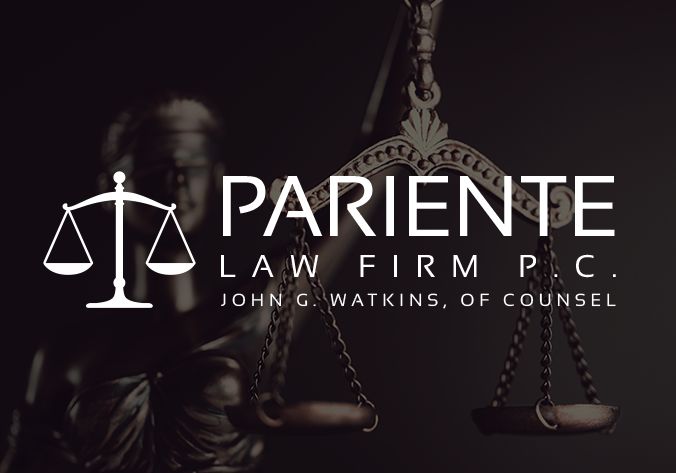
Las Vegas Child Pornography Defense Attorney
Child pornography crimes can be prosecuted under the laws of the State of Nevada, in addition to, or instead of, federal law. Local, state and federal law enforcement officers often cooperate with each other in the investigation and prosecution of these cases. State and federal prosecutors make the final decision on whether the charges are filed in state or federal court.
Unlike other types of obscenity charges, the protections provided in the First Amendment of the United States Constitution do not extend to images of child pornography. Under both federal and state law, such images are considered illegal contraband. The mere possession of these images is subject to serious criminal charges and penalties.
Under federal statutes, child pornography crimes are subject to statutory maximum terms with mandatory minimum sentence in federal prison and steep fines. A criminal defense attorney fighting child pornography cases must be well-versed in litigating motions to suppress evidence obtained as the result of a search warrant. The attorney must also be experienced in computer science and the technologies involved in the case.
Las Vegas Lawyer for Child Pornography Charges
If you have been acccused of the possession or distribution of child pornography under state or federal law in the State of Nevada, then contact Michael Pariente with Pariente Law Firm, P.C. to discuss the case. Michael Pariente is experienced in defending clients charged with these serious crimes throughout the greater Las Vegas area and throughout Clark County and the surrounding areas in the State of Nevada.
Call (702) 966-5310 to schedule a consultation if you face charges in state court or at the U.S. District Court in Las Vegas.
Types of Federal Crimes for Child Pornography
Under federal law, child pornography charges can involve the receipt, distribution and possession of materials involving the sexual exploitation of minors. In many of these cases, a local, state or federal law enforcement officer will conduct an undercover investigation into the distribution of child pornography with peer-to-peer file-sharing networks.
When the officer identifies a computer as sharing pictures or videos of child pornography over the Internet then the law enforcement officer will secure a search warrant for the suspect’s work place or residence. The officers will then descend on the property and take evidence including desktop computers, external hard drives, lab top computers, iPads and other electronic equipment.
The law enforcement officers will also interrogate the suspect with the goal of getting a confession to each and every element of the criminal offense. Even in those cases in which a full confession is not obtained, any statement made by the person accused that relates to even one element of the charge can be extremely valuable to law enforcement.
It is important for the person accused of child pornography not to make any statements to law enforcement until after he or she has retained an experienced criminal defense attorney authorized to practice in the state of federal courts in Nevada. In many of these cases, the criminal defense attorney will help the individual invoke their Fifth Amendment right against self-incrimination and their Sixth Amendment right to counsel. The attorney is able to prevent the interrogation from taking place.
The different types of federal laws against child pornography are set out in the United States Code under the following sections:
- 18 U.S.C. § 2260- Production of sexually explicit depictions of a minor for importation into the United States – this charge makes it a crime for any person outside of the United States to knowingly produce, receive, transport, ship, or distribute child pornography with intent to import or transmit the visual depiction into the United States;
- 18 U.S.C. § 2252A- Actions Involving Child Pornographic Materials;
- 18 U.S.C. § 2252- Possession, Distribution and Receipt of Child Pornography and Materials involving the Sexual Exploitation of Minors;
- 18 U.S.C. § 2251- Production of Child Pornography and the Sexual Exploitation of Children – this charge makes it illegal to coerce, entice, induce or persuade a minor child to engage in sexually explicit conduct for purposes of producing visual depictions of that conduct.
The federal statutory scheme also prohibits any person from attempting or conspiring to commit a child pornography crimes.
Definitions in Federal Child Pornography Cases
Under federal law, the age of consent for sexual activity in a particular state is largely deemed irrelevant. The age of consent in the State of Nevada is 16 years old. However, under federal law, any depiction of a minor under 18 years of age engaging in sexually explicit conduct is illegal. Nevertheless, many of these cases involve images of children under the age of 13 years old.
The definitions for many terms used under the federal statutory scheme to prohibit child pornography and obscenity can be found in 18 U.S.C. § 2256. For example, Section 2256 defines child pornography as any visual depiction of sexually explicit conduct involving a minor (someone under 18 years of age). The term “visual depictions” can include both video and photographs as well as digital or computer generated images indistinguishable from an actual minor.
Visual depictions also extends to images created, adapted, or modified, but appearing to show an identifiable, actual minor child. The term visual depictions also includes undeveloped videotape and film that has yet to be converted into a visual image of child pornography if the undeveloped videotape or film is capable of being converted into a prohibited visual image.
Defining child pornography is difficult because it includes images that do not necessarily show the child engaged in any sexual activity. For instance, a picture of a naked child can fall within the definition if it is sufficiently sexually suggestive.
Federal Jurisdiction to Prosecute Child Pornography Crimes
Crimes involving child pornography can often be prosecuted under either federal or state law. In many of these cases, local, state and federal law enforcement officers work together to investigate these cases. Prosecutors often make the ultimate decision about which jurisdiction will prosecute the cases in court. For federal prosecutions, jurisdiction under federal law is implicated if the child pornography offense occurred in interstate or foreign commerce.
Examples of child pornography occurring in interstate commerce include use of the United States mail system, or common carriers such as UPS to transport the pornography involving a minor child across state lines or over international boarders.
Many of these cases involve the use of the Internet. In the vast majority of cases, using the internet is sufficient to implicate federal jurisdiction. Even in those cases in which the image never crosses state lines, federal law might apply in certain circumstances. For instance, it has been held that federal jurisdiction is implicated if the child pornography image was stored on a CD Rom that had previously travelled across state lines.
Penalties for Child Pornography under Federal Law
Child pornography crimes under federal law provide for serious penalties and punishment. For example, a first time conviction for producing child pornography under 18 U.S.C. § 2251 results in a statutory minimum mandatory sentence of 15 years in federal prison with a statutory maximum term of up to 30 years incarceration.
A first time conviction for transporting child pornography under 18 U.S.C. § 2252, comes with a statutory minimum mandatory term of 5 years in federal prison with a statutory maximum of up to 20 years maximum in prison. Enhanced penalties apply if certain aggravated factors are present in the case including:
- the images are violent, sadistic, or masochistic in nature; or
- the minor was sexually abused.
Enhanced penalties apply if the person charged has a prior criminal record related to the sexual exploitation of a child or child pornography. Those enhanced penalties can include a sentence of up to life in prison under certain circumstances.
Additional Resources on Federal Child Pornography Crimes
Project Safe Childhood (PSC) – Many of these cases are investigated by the Nevada Internet Crimes Against Children Task Force, which includes the FBI, Homeland Security Investigations, the Nevada Attorney General’s Office, and the Clark County Sheriff’s Office. These cases are often brought as part of Project Safe Childhood (PSC), a nationwide initiative launched in May 2006 by the Department of Justice to combat crimes related to child sexual exploitation and abuse. The investigations and prosecutions are lead by the United States Attorneys’ Offices and the Criminal Division’s Child Exploitation and Obscenity Section.
Federal Law on Child Pornography – The United States Department of Justice has published a citizen’s guide to United States Federal Law on Child Pornography. Find a list of the federal statutes related to obscenity and child exploitation. The article also discusses First Amendment rights and their application in these cases, federal jurisdiction requirements, and punishments for various types of offenses.
Finding a Federal Child Pornography Defense Attoney in Nevada
If you are under investigation for a federal crime in the State of Nevada, then contact Michael Periente with Pariente Law Firm, P.C.. Many charges for crimes against children begin with an undercover investigation. Other cases begin when the alleged victim comes forward to report the crime. After the accusation is made, law enforcement officers at the state or federal level work quickly to obtain a search warrant and desend on the suspect’s work place or residence.
If you believe an accusation has been made against you, then work quickly to retain an experience criminal defense attorney. The law enforcement officers, agents and detectives in these cases often have professional knowledge about the habits of child pornography collectors and the methods used with the internet and computers to obtain child pornography. The criminal defense attorney must also be experienced in fighting these difficult cases.
For any case in the greater Las Vegas area, including all of Clark County and the surrounding areas, contact Pariente Law Firm, P.C. to discuss your case.

Read Our Case Results
-
 Casino Marker
Casino Marker -
 Casino Marker
Casino Marker -
 Battery Constituting Domestic Violence
Battery Constituting Domestic Violence -
 Battery and Domestic Violence
Battery and Domestic Violence -
 Attempted Murder, Kidnapping, Burglary, and Battery
Attempted Murder, Kidnapping, Burglary, and Battery
Get to know the Pariente Law Firm Team
-
Good criminal lawyers aren’t cheap, and cheap criminal lawyers aren’t good. A good criminal lawyer will be far more expensive than an average or below-average criminal lawyer. You’ll know the investment once we meet.
-
Yes. You’ll work directly with Michael Pariente—not be passed off to a junior associate. You’ll always have Michael Pariente’s personal cell phone (not a texting app.)
-
Yes. Even first-time charges can carry serious consequences. Having a defense attorney helps protect your record, reduce charges, or even get your case dismissed.
-
Absolutely. From DUIs to white collar offenses, we’ve successfully defended thousands of cases. Here’s just one example of a case we’ve won.
-
Good criminal lawyers aren’t cheap, and cheap criminal lawyers aren’t good. A good criminal lawyer will be far more expensive than an average or below-average criminal lawyer. You’ll know the investment once we meet.


